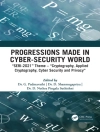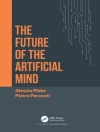The present text aims at helping the reader to maximize the reuse of information. Topics covered include tools and services for creating simple, rich, and reusable knowledge representations to explore strategies for integrating this knowledge into legacy systems. The reuse and integration are essential concepts that must be enforced to avoid duplicating the effort and reinventing the wheel each time in the same field. This problem is investigated from different perspectives. in organizations, high volumes of data from different sources form a big threat for filtering out the information for effective decision making. the reader will be informed of the most recent advances in information reuse and integration.
İçerik tablosu
1 PERDURABLE – A Real Time Commit Protocol.- 2 Dimension Table Selection Strategies to Referential Partition a Fact Table of Relational Data Warehouses.- 3 Obsever-based Adaptive Fuzzy Control of a Class of Nonlinear Time-delay Systems with Input Nonlinearity and Its Application to Chaos Synchronization.- 4 Evolution Management of Data Integration Systems by the Means of Ontological Continuity Principle.- 5 Automated Learning for Assessment of School Readiness: Effectiveness of Reusing Information from Child’s Social Network.- 6 From Simple Management of Defects to Knowledge Discovery to Optimize Maintenance.- 7 Rules for Effective Mapping between two Data Environments: Object Database Language and XML.- 8 Feature Selection for Highly Imbalanced Software Measurement Data.- 9 Long-Term Time Series Prediction using k-NN Based LS-SVM Framework with Multi-Value Integration.- 10 Semantic Management of Digital Contents for the Cultural Domain.- 11 Mediated Data Integration Systems using Functional Dependencies Embedded in Ontologies.- 12 Algorithms for Spatial Data Integration .- 13 Integrating Geographic and Meteorological data for Storm Surge Planning.- 14A Supervised Machine Learning Approach of Extracting and Ranking Published Papers Describing Coexpression Relationships among Genes.- 15 Music Artist Similarity Aggregation.- 16 Tag Grid: supporting collaborative and fuzzy multidimensional queries of tagged datasets.- 17 A Service-Based Approach for Next-Generation Product Lifecycle Management.- 18 Retrieving Reusable Software Components Using Enhanced Representation of Domain Knowledge.- 19 The Utility of Inconsistencies in Information Security and Digital Forensics.












